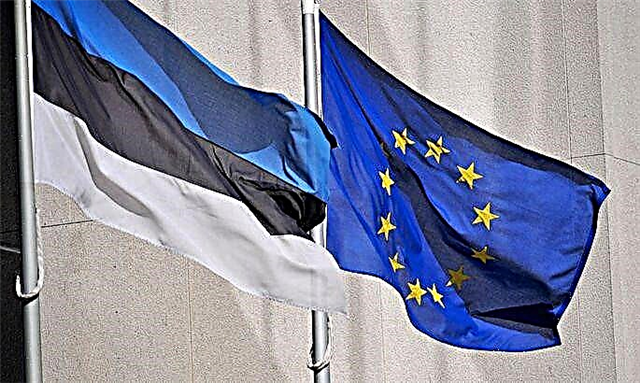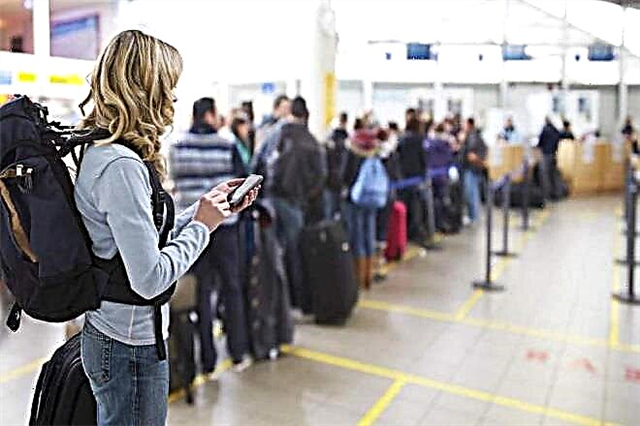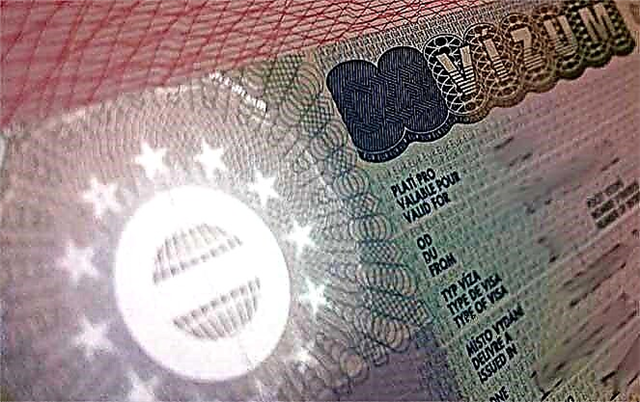If you want to get higher education in the Czech Republic, you will need a long-term tourist visa to this country. This document will give you the right to legally stay in the Czech Republic for six months or longer and to attend classes at a university on a full-time basis. A student visa to the Czech Republic opens up prospects for you to gain fundamental knowledge in your chosen specialty, serious practice of communication among native Czech speakers and, ultimately, a diploma from a prestigious European university. But first you need to correctly draw up documents for stay in this state.

What is a student visa
If we talk about a visa in general, we note that it is a permissive document that allows you to cross the borders of a state of which you are not a citizen. And even if there is an agreement on a visa-free regime between the countries, this does not relieve you of migration control when crossing the border of a foreign state.
For Russians, such control is not provided only when entering Belarus, with which the Russian Federation has a visa union. But for legal entry and stay for a certain time in the Czech Republic - a state that is a member of the EU, a visa is required.
Visas are immigration, when a person is allowed to permanently live and work in a foreign state, and nonimmigrant.
Therefore, we will immediately make a reservation that a student visa is one of the types of nonimmigrant visas. This means that you will not be able to permanently reside in the country on it.
Accordingly, in order to quickly and easily get just such a visa, you will have to convince the employees of the consulate in the Czech Republic that your goal is precisely the desire to study in this country, and not to immigrate there.
A long-term visa becomes if it is issued for a period of more than 3 months. In our case, a half-year (for 1 semester) and one-year (for 1 course) visa to the Czech Republic are possible.
Types of student visas to the Czech Republic
Czech student visas come in different types. Depending on your life plans and the level of adaptation to living conditions in the Czech Republic, you must decide what kind of document you need.
- Long-term student visa. Actually, this is a student visa in the narrow sense of the word. You can get it quickly - within two months, and no special procedures will be required for this, except for the submission of documents and an interview in Russian. Such a visa is issued for a period of 6 months and, as a rule, up to one year. Upon arrival in the Czech Republic, you will need to register with the local Ministry of the Interior, after which you can safely start the educational process ...
- Residence. In essence, this is a slightly different document, however, it can also be used for legal training in the Czech Republic. Having a residence permit can save you from problems with registration for a year or two. This is a more solid paper that allows you to live in the country, while what you do is your own business.
The main disadvantage of a residence permit is that it may be more difficult and time-consuming to obtain it. In particular, you will need to pass an interview in Czech. However, in case of a positive outcome of the case, you will receive a visa for two months, after which the same Czech Ministry of Internal Affairs will issue you a residence permit.
Both student visa and residence permit can be extended. Therefore, in practice, most applicants prefer to first acquire a student visa and only after graduating from the university apply for a residence permit along with a work permit.
Of course, if you plan to study in absentia and work in the Czech Republic, a student visa will not help you. In this case, it is better to immediately apply for a work visa (at the invitation of the employer) and a residence permit.
However, it should be borne in mind that it is easier for students seeking to devote themselves exclusively to study to obtain permits than their fellows looking for part-time work.
Where and how a student visa is issued
You can apply for a student visa only at the consular section of the Czech Embassy. It all starts with an e-mail address to this department. After you have been sent an invitation from the university, you need to download the application form from the consulate website and fill it out.
After that, you have to prepare a package of necessary documents, submit it and wait for a solution to your question.
What documents need to be prepared to obtain a student visa to the Czech Republic
To obtain a student visa, you will need the following documents:
- a completed application form for your intention to obtain a student visa;
- passport, which must be valid for at least 11 months after the expiration of the visa. Otherwise, you will have to renew it;
- two identical color photos with a format of 3.5 x 4.5 cm. On the reverse side you need to write your full name and date of birth in Latin letters;
- health insurance policy provided by any Czech insurance company. The validity of the insurance must cover the entire period of stay in the country, the amount of coverage must be at least 60,000 euros. It should be remembered that without presenting a receipt for payment of medical insurance, you will not be issued a ready-made visa;
- confirmation of admission and the provision of housing from a Czech university, which you will receive by mail immediately after paying for tuition for the first semester. Here's an example:

- a bank statement stating that you have at least 4,000 euros in your account. For a minor student, this can be a statement from the account of the next of kin, for example, parents. Moreover, in this case, a slight relief is provided - the minimum amount can be 3000 euros;
- an agreement on the availability of a place of residence for the entire period stipulated by the visa. Most often, this is a university dormitory, which is provided automatically for foreign students at Czech universities. Payment for living in it is 105 euros per month;
- police clearance certificate in your country. There is an important nuance here: if over the past 3 years you have been in another country for more than six months, then confirmation of the absence of a criminal record will also be needed from there;
- A4 envelope and postcard "Receipt of delivery" with your address in Latin. You will need this to send you a reply by mail;
- copies of all documents, except for the application.
On this, the list of documents for students who have reached the age of majority can be considered exhausted. But those who have not yet turned 18 years old will have to be puzzled by providing some more papers:
- written consent of both parents for the child to cross the Czech state border. Moreover, it does not matter whether the parents are officially married or not - consent is required from both of the perpetrators of the child's birth indicated in the birth certificate;
- birth certificate;
- in the event of the death of one or both parents, it is necessary to provide an appropriate certificate of death.
All submitted documents must be translated into Czech and notarized. It should be borne in mind, however, that translation services provided by numerous private firms tend to cost a little less than a court translator.
How is the interview at the Czech consulate
Since the student visa is considered a long-term visa, you will most likely be called for an interview. Its main purpose is to verify the authenticity of the data you specified in the questionnaire.
The main thing you should remember is that the consulate has the legal right to refuse a visa based on the results of a conversation with you.Therefore, in order to properly strategize your behavior in the interview, it is important to know for what reasons you may fall out of favor.
Basically, if you have indicated everything honestly and correctly, there is nothing to be afraid of. However, there is also such a generalized reason to refuse you, such as “revealing the intention to engage in another occupation that is not indicated as the purpose of the visit”. Therefore, you should convince the consular staff that you are going to study, and not to earn extra money or emigrate.
In addition, you must be prepared for the fact that at the interview you may be required to provide additional documents to those already submitted earlier, as well as invite you to a new interview. Meanwhile, the threat not to obtain a visa is rather theoretical - the overwhelming majority of applicants become holders of an entry permit.
How long will it take for a visa and how much does it cost
After all documents have been submitted, the deadline for your request is 60 to 120 days. In exceptional cases, the consideration may take up to six months, but this does not happen often. The best way to speed up the process is to submit all the necessary paperwork and follow all instructions clearly. In this case, it is highly likely that you will become the holder of a long-term student visa to the Czech Republic after two months.

The cost of the visa fee is 35 euros. A long-term visa will cost about 100 euros. There are many legal companies and individuals offering assistance with its registration. However, by contacting them, for a long-term visa from six months or more, you will have to pay from 500 euros.
How to renew a student visa
You can extend your student visa almost unlimited number of times as long as you continue your studies. Meanwhile, this must be done in a timely manner during the transition to each next course and even semester, so as not to lose the right to legally stay in the country.

Moreover, you do not need to leave the country for this. It is only necessary, no later than 14 days (for the first time, preferably two months) before the expiration of the previous visa, to re-submit to the Ministry of Internal Affairs of the Czech Republic the same documents that you already submitted to the consulate when receiving a visa. The initial renewal usually occurs within two months. In the future, the procedure is faster.
For what reasons can a visa be refused and what should be done in this case
As mentioned above, a visa can be refused for various reasons, including because of an incorrectly formulated purpose of your visit. However, as practice shows, most often they refuse due to expired documents, for example, a passport.
Does not increase your chances of obtaining a visa and the lack of all the necessary documents, for example, the consent of one of the parents to cross the border, etc.
Of course, in order not to get into such situations, you need to be extremely careful and prudent and avoid annoying mistakes.
Answers to some frequently asked questions
After deciding on the intention to study abroad, many questions arise related to the paperwork and further stay in the country chosen for study as a whole. Let's try to answer some of them that are asked quite often.
In which city do you need to apply for a visa?
You can apply only in the city where there is a consular section of the Czech Embassy. For Russians, these are Moscow, St. Petersburg and Yekaterinburg. In Ukraine, there are Czech consulates in Kiev and Lvov, and in Belarus and Kazakhstan - only in Astana and Minsk. Do not forget that the applicant must submit all documents in person.
Can I travel with a Czech visa?
Of course yes. After all, the Czech Republic is an EU state, therefore, after receiving a permit to enter its territory, the borders of all countries of the Schengen customs area are open for you. These include most European countries, for example, Germany, France, Poland, etc. You cannot travel outside Schengen with a Czech visa.
Can I work with a student visa?
In principle, this is discouraged. Although part-time jobs are allowed, they are limited to 150 hours per year. Unfortunately, in the Czech Republic it is difficult for a student to count on a high salary - on average, you will receive 100 kroons per hour, that is, in fact, less than 5 euros.
Finally
Obtaining and using a long-term student visa to the Czech Republic can be your chance to obtain a full-fledged higher education of the European level and a valuable life experience of staying in a different cultural and linguistic space. In order to guarantee its issuance, from a formal point of view, you just need to be careful and not make any mistakes. But in order to live and study in the Czech Republic, you must be ready not only morally, but also financially.











